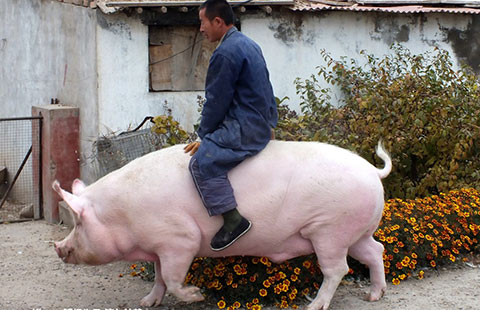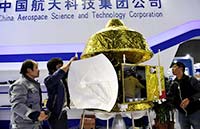Ma Ying-jeou expects Singapore meeting to benefit next generation
(Xinhua) Updated: 2015-11-05 18:34TAIPEI -- Ma Ying-jeou, leader of Taiwan, said on Thursday he will try to improve exchange and cooperation, and reduce hostility on certain issues during his meeting with Xi Jinping in Singapore on Saturday.
Ma told a press conference he hopes the meeting will be the first step of a regular arrangement in the future.
"The meeting will be advantageous for the next generation," he said, adding that it was the result of improving cross-Strait relations and mutual trust in the past seven years.
Since 2008, 11 rounds of cross-Strait talks have been held and 23 important agreements signed, including the lifting of bans on direct shipping, air transportation and post in 2008, and the Economic Cooperation Framework Agreement in 2010.
Cross-Strait interaction has progressed from talks between two non-governmental organizations to meetings between cross-Strait affairs chiefs from both sides.
"We can see a pattern. We cannot rule out the possibility of higher-level mechanisms," Ma said.
The ultimate purpose is to promote cross-Strait peace and prosperity, consolidate regional stability and improve people's welfare, he said.
The mainland has hailed the scheduled meeting "a breakthrough" and "milestone."
On Wednesday, Zhang Zhijun, the mainland's Taiwan affairs chief, noted that the decision showed both sides were willing to put aside their differences and respect each other.
The meeting will be the first in 66 years since the Kuomintang, led by Chiang Kai-shek, fled to Taiwan after being defeated in a civil war.
At the meeting, Xi and Ma, as "leaders of the two sides of the Strait," will address each other as "Mr."
The Singapore meeting is in line with the one-China principle, Zhang said.
Although the Xi-Ma meeting has been met with much praise, supporters of "Taiwan independence" are not so impressed.
On Wednesday when the meeting was announced, supporters of "Taiwan independence" rallied in front of the island's legislature and Ma's office, protesting the decision and demanding his resignation.
A number of opposition politicians also criticized Ma for not notifying the legislature. Some accused him of trying to secure support for the Kuomingtang (KMT) in the 2016 leadership election.
Eric Chu, KMT chair, is running for the election. He released a statement saying that previous confrontation across the Strait had cost Taiwan dearly, and the peace of the last few years had benefited the island.
Saturday's meeting will be a game changer, but certain political fractions insist on opposing it, leaving questions over where they stand on cross-Strait policies, Chu said.
Yok Mu-ming, chair of Taiwan's New Party, wrote in an article published Thursday that the decision to meet Xi was the right call.
"China Times," argued in its Thursday report that "Taiwan independence" supporters would loose out if they overreact to the meeting.
Interestingly, leaders of the major opposition DPP were quite ambiguous in their response.
Although accusing Ma of "narrowing Taiwan's future for the sake of personal political legacy," a day earlier, DPP chair Tsai Ing-wen, who is also running for the 2016 election, told media Thursday that the wider society was not against the meeting, and she cannot rule out the possibility of meeting Xi if elected.
DPP secretary-general Joseph Wu also told media on Thursday that DPP will not stop the Xi-Ma meeting or oppose the possible regular meetings of cross-Strait leaders.
- Singapore plays positive role in ties with Taiwan
- Taiwan voices high expectation for upcoming Xi-Ma meeting
- New digital map on dengue outbreaks in Taiwan launched
- Xi to meet Taiwan leader in Singapore
- Chinese FM responds to Taiwan authority' statement regarding S. China Sea case
- Alipay to launch payment service in Taiwan
- China-Vietnam border major channel for drug smugglers
- China to speed up restructuring of zombie SOEs
- Singapore plays positive role in ties between mainland and Taiwan
- Success of Fox Hunt campaign continues
- SOE changes aim to improve efficiency
- Major farm reform on the horizon
- Deadline set for hukou revisions
- Tibetans weave faith into music
- Xi-Ma meet to lead cross-Strait high-level exchanges
- English skills slip in China: survey







